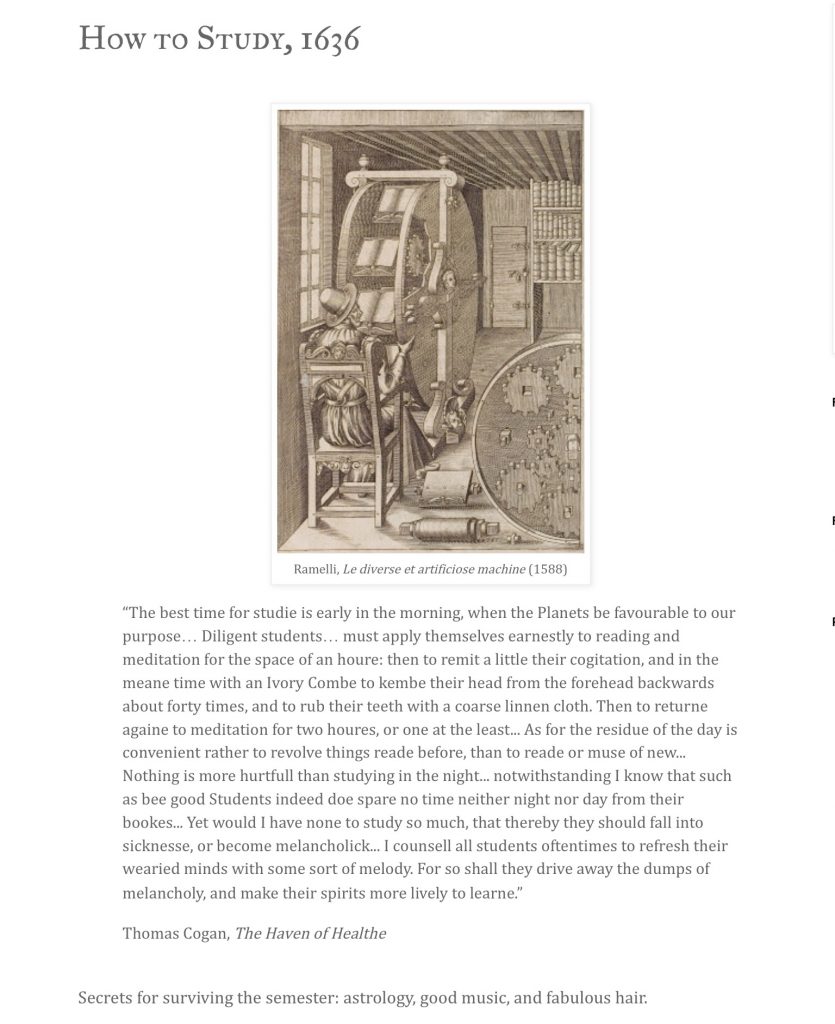LAST UPDATED: 2018-04-23

QUICK NAVIGATION
QUIZZES = you may find it useful to prepare using the the vocabulary pages at the end of each chapter and the ebook’s audio flashcards
TEST 1 = on ch. préliminaire + ch. 1
- FORM: closed book = no textbook, ebook, dictionaries, electronic devices, or other materials; in class; timed to take 10-15 minutes. You may ask your instructor questions.
- NB: because this test is closed-book, you will NOT be expected to know every single word of French up to the end of ch. 1 in Horizons: this is not a test of mechanical parroting, nor a test of how much you have off by heart in short-term memory: it’s a test on using French, on the application of knowledge, on learning. If you are stuck for a word, please ask your instructor: they will be able to give you at least a hint or a clue, even if (depending on your question and its context) they might not be able to give you the exact answer (for example, in the grammar exercises at the start of the test).
- TEST FORMAT:
Grammar & vocabulary exercises may vary: multiple-choice, fill-in-the-blanks (like exercises that you are doing on iLrn) + short open-ended writing. Answer in French.
—adjectives and their agreement, the comparative, adverbs
—the verb ÊTRE in the present tense
—indefinite and definite articles - Material will include (see also revision guides in next item):
—adjectives and their agreement, the comparative, adverbs
—the verb ÊTRE in the present tense
—indefinite and definite articles
—greeting people, talking about yourself
—the time, your schedule, your studies
—description - revision guides:
—ch. préliminaire : vocabulary (PDF)
—ch. 1: synopsis of grammar + vocabulary (PDF) - practice test and answer key (= “CORR”) from summer 2017; the same general format
- see also:
—iLrn guide 2: the online exercises (PDF)
—iLrn guide 3: going beyond the regular set exercices: how to use iLrn for extra practice and revision (PDF)
—audio files associated with your textbook: audio running through a chapter (ex. conversations at the start of the chapter), audio flashcards at end of chapter
TEST 2 = ch. 2
- FORM AND FORMAT: like Test 1
- revision guide:
- practice test and answer key (= “CORR”) from summer 2017; the same general format
- see also:
- iLrn guide 2: the online exercises (PDF)
- iLrn guide 3: going beyond the regular set exercices: how to use iLrn for extra practice and revision (PDF)
- audio files associated with your textbook: audio running through a chapter (ex. conversations at the start of the chapter), audio flashcards at end of chapter (PDF)
TEST 3 = ch. 3
- FORM AND FORMAT: like Test1
- revision guide:
- practice test and answer key (= “CORR”) from summer 2017; the same general format
- see also:
- iLrn guide 2: the online exercises (PDF)
- iLrn guide 3: going beyond the regular set exercices: how to use iLrn for extra practice and revision (PDF)
- audio files associated with your textbook: audio running through a chapter (ex. conversations at the start of the chapter), audio flashcards at end of chapter (PDF)
TEST 4 = ch. 4
- FORM AND FORMAT: like Test 1
- revision guide:
- practice test and answer key (= “CORR”) from summer 2017; the same general format
- see also:
- iLrn guide 2: the online exercises (PDF)
- iLrn guide 3: going beyond the regular set exercices: how to use iLrn for extra practice and revision (PDF)
- audio files associated with your textbook: audio running through a chapter (ex. conversations at the start of the chapter), audio flashcards at end of chapter (PDF)
FINAL EXAMINATION = everything up to the end of ch. 4
-
- 2017-18 OLD EXAM FOR PRACTICE:
- one of the two 2017 winter session term 1 final exams (we always have two versions; PDF)
+ a corrected version of it (including marking guidance comments for instructors, in French; PDF)
- 2016-17 OLD EXAM FOR PRACTICE:
- final examination revision guide (PDF = an exam MINUS the actual questions)
- one of the two 2016 winter session term 1 final exams
+ a corrected version of it (including marking guidance comments for instructors, in French; PDF)
- 2015-16 OLD EXAM FOR PRACTICE:
- one of the two 2015 winter session term 1 final exams
+ a corrected version of it (including marking guidance comments for instructors, in French; PDF)
- one of the two 2015 winter session term 1 final exams
- 2014-15 OLD EXAM FOR PRACTICE:
- one of the two 2014 winter session term 1 final exams
+ a corrected version of it (including marking guidance comments for instructors, in French)
- one of the two 2014 winter session term 1 final exams
- please note that exam content varies, so you may find one grammar point appears in an exam one year or term but not another. Anything worked on in class (or in online exercises) but not covered specifically elsewhere in the exam may of course be used in your composition.
- read also general guidance on preparing for exams and the final examination
- NB the final exam is cumulative and on everything in the whole course:
- ch. préliminaire : vocabulary (PDF)
- ch. 1: synopsis of grammar + vocabulary (PDF)
- ch. 2: synopsis of grammar + vocabulary (PDF)
- ch. 3: synopsis of grammar + vocabulary (PDF)
- ch. 4: synopsis of grammar + vocabulary (PDF)
- iLrn guide 2: the online exercises (PDF)
- iLrn guide 3: going beyond the regular set exercices: how to use iLrn for extra practice and revision (PDF)
- audio files associated with your textbook: audio running through a chapter (ex. conversations at the start of the chapter), audio flashcards at end of chapter
- one of the two 2017 winter session term 1 final exams (we always have two versions; PDF)
- 2017-18 OLD EXAM FOR PRACTICE:
SEE ALSO
-
-
- THE RULES = syllabus (2) > Missing or rescheduling tests and examinations
- THE RULES > UBC exam policies & accommodations
-
The good news about FREN 101 & 102 exams is that you should not have any revision to do; none of the sorts of “studying” that are needed in some other kinds of course and academic field.
French is a language; and language-learning is more like music or sport than, say, biology or economics. Language-learning is cumulative—with new knowledge building on previous acquisitions—and happens and is reinforced through regular practice. If you have been to class, worked in class, and worked on your online exercises outside class: ideally, doing some French every day: then you should be well prepared for all the quizzes, tests, and exams in FREN 101 & 102.
What more can you do?
Work on the online exercises: revision for tests and exams is one of the reasons you have multiple attempts and no deadline for them!
You can also do other exercises in iLrn (these are optional, in that they do not count towards your grade), and redo exercises worked on in class from the textbook (and indeed other exercises from the textbook too; these, too, are optional and do not count towards your final grade).
Work in shorter intensive stretches (maximum 20 to 30 minutes), with regular breaks. Set an alarm or a timer, to ensure that you have a break for at least 5-10 minutes every hour. Eat. Sleep. Exercise, especially outdoors in the fresh air. (If your parents and other family tell you this all the time: give them a hug from me.)
Read, watch, and listen to some French every day: even 5 minutes of skim-reading newspaper headlines online. Any French, from any Francophone place, on any subject. This is also a good excuse to watch a movie in French (in French, preferably with sub-titles in French too).
BONUS: some useful practical general tips and advice from Timothy Gowers (Mathematics, University of Cambridge) > scroll down to “General study advice”
(THE FOLLOWING TIPS ARE INTENDED MORE FOR THE FINAL EXAM)
“Self-tests” and “Practice” in iLrn may be helpful: I would recommend doing these together with one or two other students. These are mainly intended for practice before the final exam, rather than chapter tests, but if you are working with some other students in a study-group this is good material on which to work.
The “Reprises” sections at the end of some chapters, accompanied by their videos and exercises. These are in iLrn > Media Library > pick whichever chapter you are working on, or go through them all one by one > “Les Stagiaires.”


